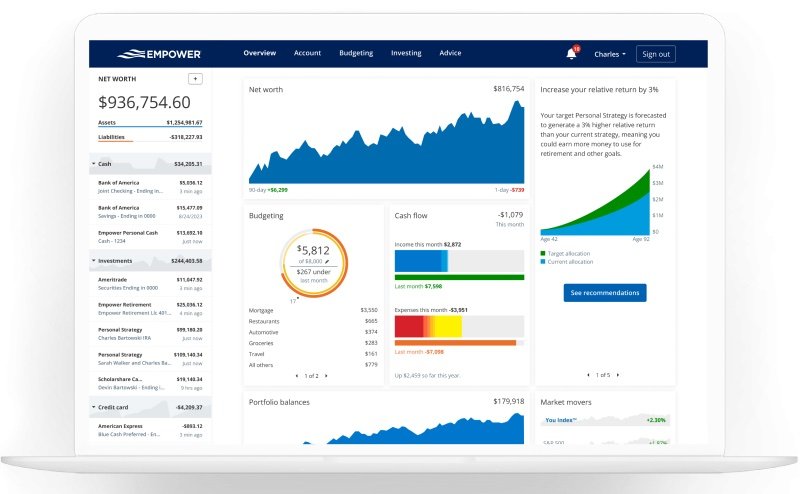What’s in the 2025 Big Beautiful Bill for Freelancers and Self-Employed?
The ‘don’t blame me’ blurb: I am not a financial advisor, portfolio manager, or accountant. This is not tax or investment advice; it’s educational information to get you going. Please consult your trusty professional and do your due diligence. Carry-on!
It’s an expansive bill. These are just the highlights for us freelancers and the self-employed.
👉 Some of these provisions expire in 2028; however, as we have seen with the 2017 Trump tax cuts, which have just been extended, politicians are loath to remove them.
👉 This is a summary of the provisions; the devil is in the details for many of them. Chat to your accountant and/or union.
Updated: Union contract freelancers may not get the full overtime deduction.
Updated: Cuts to the Affordable Care Act (ACA) may cause the loss of subsidies on health exchanges.
The 2017 Temporary Tax Rates Are Now Permanent
Without the bill passing, the tax brackets would have reverted to:
12% → 15%
22% → 25%
24% → 28%
32% → 33%
37% → 39.6%
Explore how progressive tax rates work and view your specific rates here
199A Pass-Through Small Business Deduction
The deduction increases from 20% → 23% for many freelancers, sole proprietors, S-corps.
100% Bonus Depreciation Extended
• Deduct 100% of the purchased equipment/software in year 1 instead of depreciating the cost over multiple years.
• Must be placed in service on or after January 19, 2025.
SALT Deduction Cap Raised
• Deduct up to $40k of state/local tax from your federal tax return, up from $10k.
• Cutoff at $500k income threshold. Expires 2030.
• Me: This is probably my most significant tax saving. My federal marginal tax rate is 35%. The extra $30k deduction could mean I pay $10,500 less tax. Read about how your tax rates work here.
No Tax On Tips
• Deduct up to $25k for tip income from federal tax, state and local tax still applies.
• Only for individuals in traditionally and customarily tipped industries who do not itemize—the deduction applies to cash or cash-equivalent tips (including credit cards).
• The deduction is reduced if your income $150k (single) or $300k (married).
• Expires 2028.
No Tax On Overtime
• Deduct up to $12.5k (single) or $25k (married).
• It appears only the ‘overtime premium’ is deductible. eg. $100/hr base rate, $150 OT rate, only the earnings from the $50/hr premium are deductible.
• Update: Those under a union contract and 1099 contractors may face limits on what they can deduct. Check with your union and/or accountant.
• Reduces at $150k (single) or $300k (married). Expires 2028.
Car Loan Deduction
• Deduct up to $10k for car loan interest. Begins reducing at $100k (single) or $200k (married).
• The vehicle must weigh less than 14,000 pounds and be assembled in the United States.
• It covers purchases made in 2025 through 2028, and expires in 2028.
• Jonathan Smoke, chief economist at market research firm Cox Automotive, downplayed the benefits of the deduction, saying a new loan would see roughly $500 in savings per year.
1099-K Limit Rises from $600 to $20k
eBay, PayPal, Venmo, etc, don’t report until $20k AND 200 transactions. Yes, $20k, plus you must have over 200 transactions.
EV Subsidies Cancelled
Used or new EV vehicle credits/energy-efficient home improvement credits expire on Sept 30, 2025.
Changes to the Affordable Care Act (ACA)
Some of the 24 million people who get their health care from the ACA insurance marketplaces may be affected due to the $1 trillion cut made to Medicaid, Medicare, and the ACA. This would begin at the end of 2025.
The removal of the tax credit in place since 2021 enabled more than 22 million people — about 92% of ACA enrollees — to receive a federal subsidy this year that reduced their insurance premiums, according to KFF, a nonpartisan health policy research group.
According to Larry Levitt, KFF’s executive vice president, without the credits, average out-of-pocket premiums in 2026 would rise by more than 75%,
From the Washington Post:
”4.2 million people would become uninsured due to the expiration of boosted subsidies for private ACA health plans, which the GOP legislation doesn’t extend beyond this year.”
Many Taxbreaks, But What’s the Catch?
The bill is estimated to increase the national debt by $3.4 trillion over the next decade, according to the Congressional Budget Office.
How Could This Affect You Long-Term?
Critics warn that the proposal would increase borrowing costs for households and businesses, lower wages, lead to higher inflation, and crowd out private investment due to the increased government debt competing with private borrowers in financial markets.
Why Would Interest Rates Rise?
Wall Street Journal, Sat. July 7th:
”The long-term verdict might be rendered in U.S. bond markets. The U.S. borrows money by issuing Treasurys, and an oversupply of those bonds would drive up yields, which rise when prices fall. Because interest rates on other debt are linked to Treasury yields, that would also lift costs on mortgages, car loans and corporate bonds.”
How will the Big, Beautiful Bill affect your biz and your clients? What hacks do you use to minimise your taxes? Comment below!










